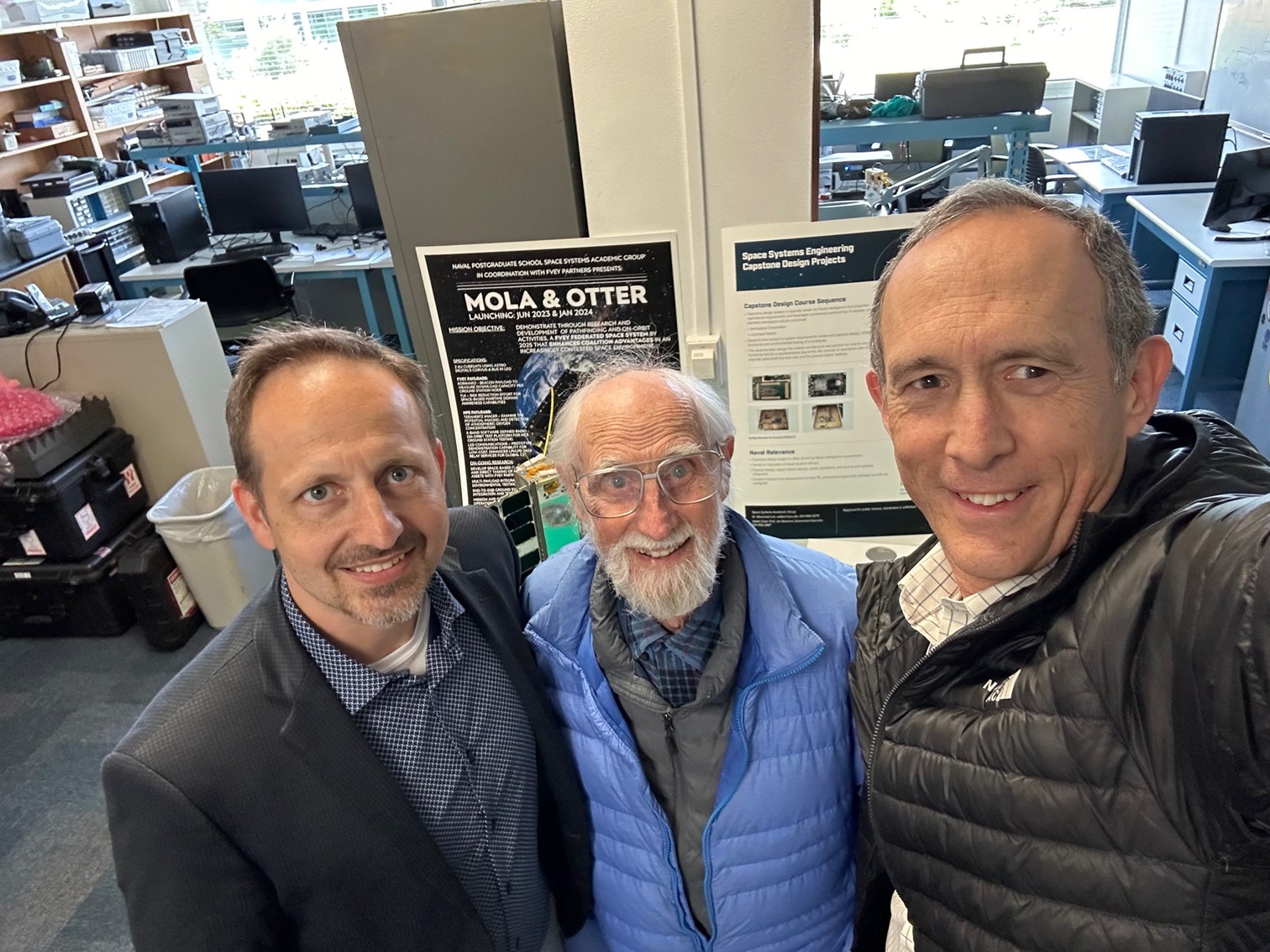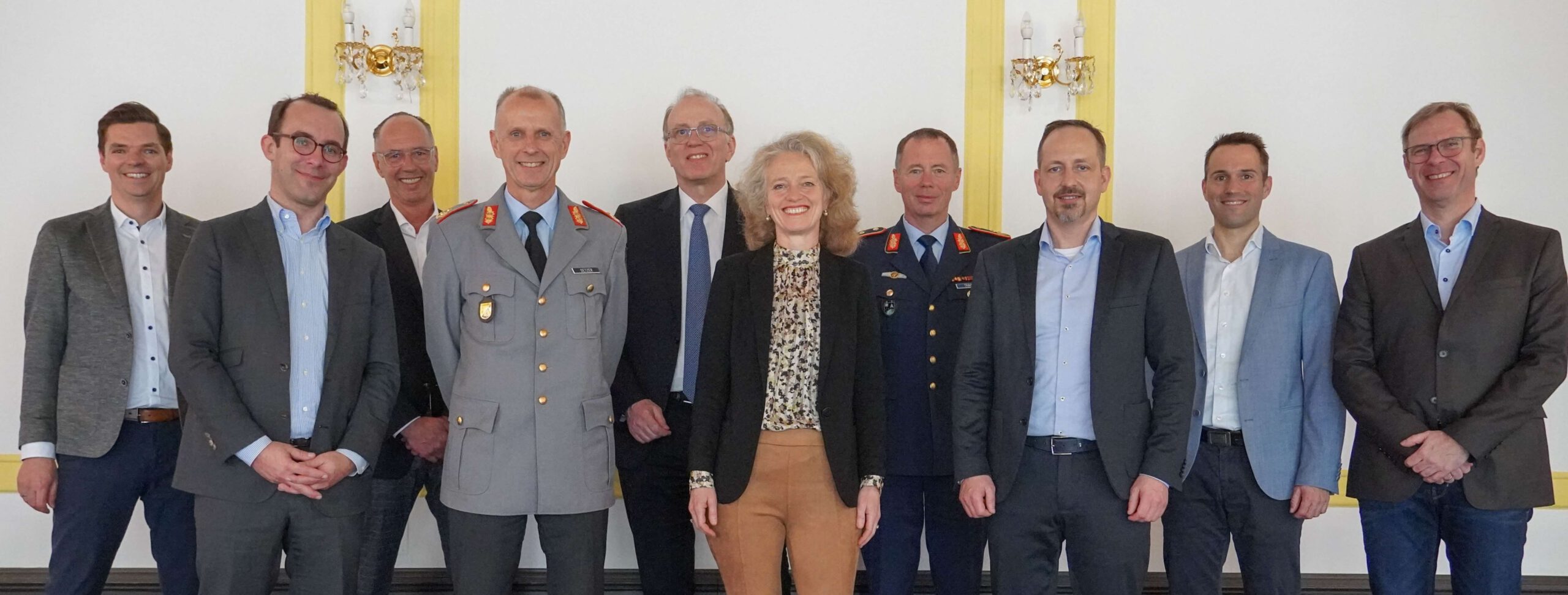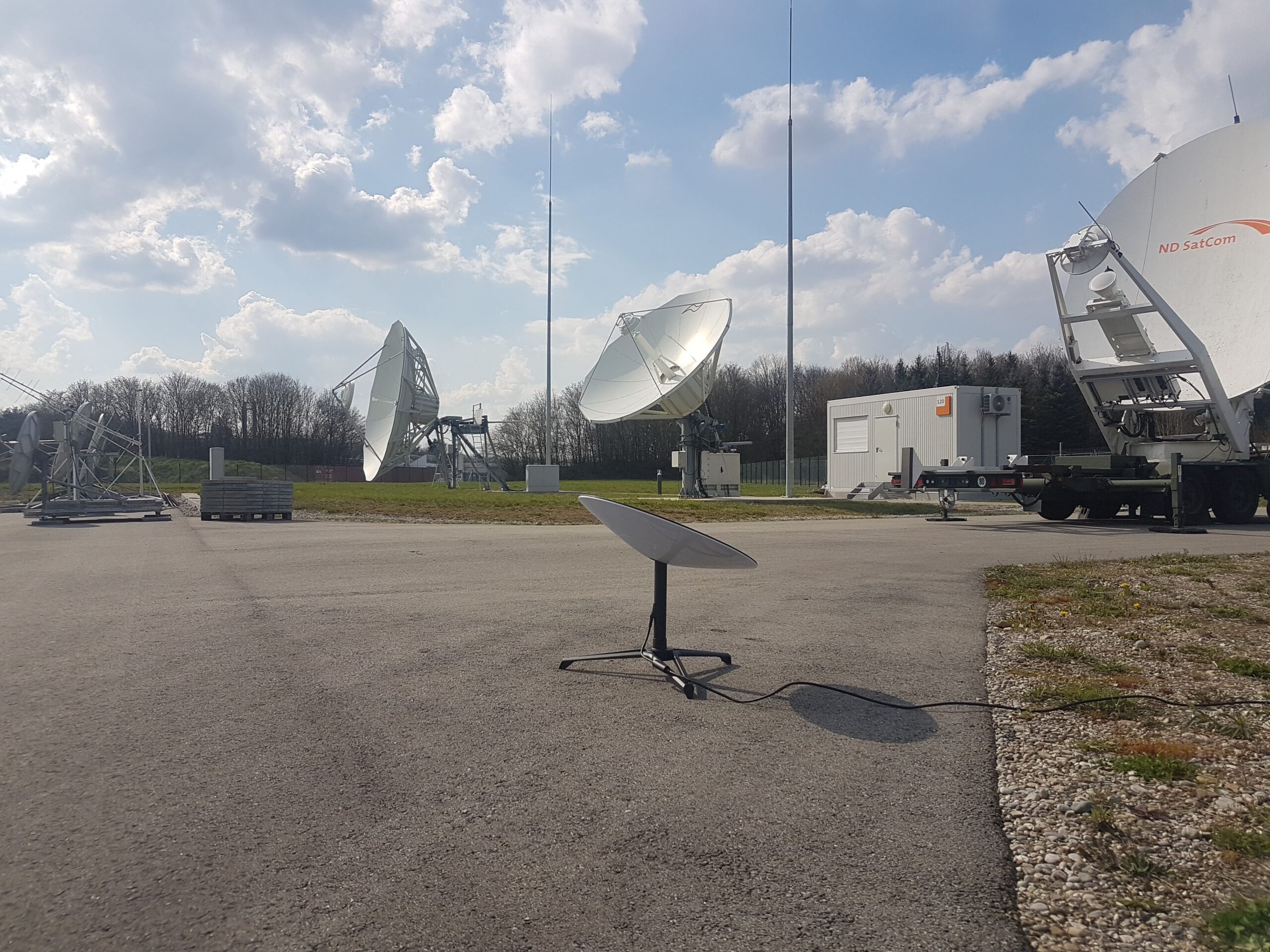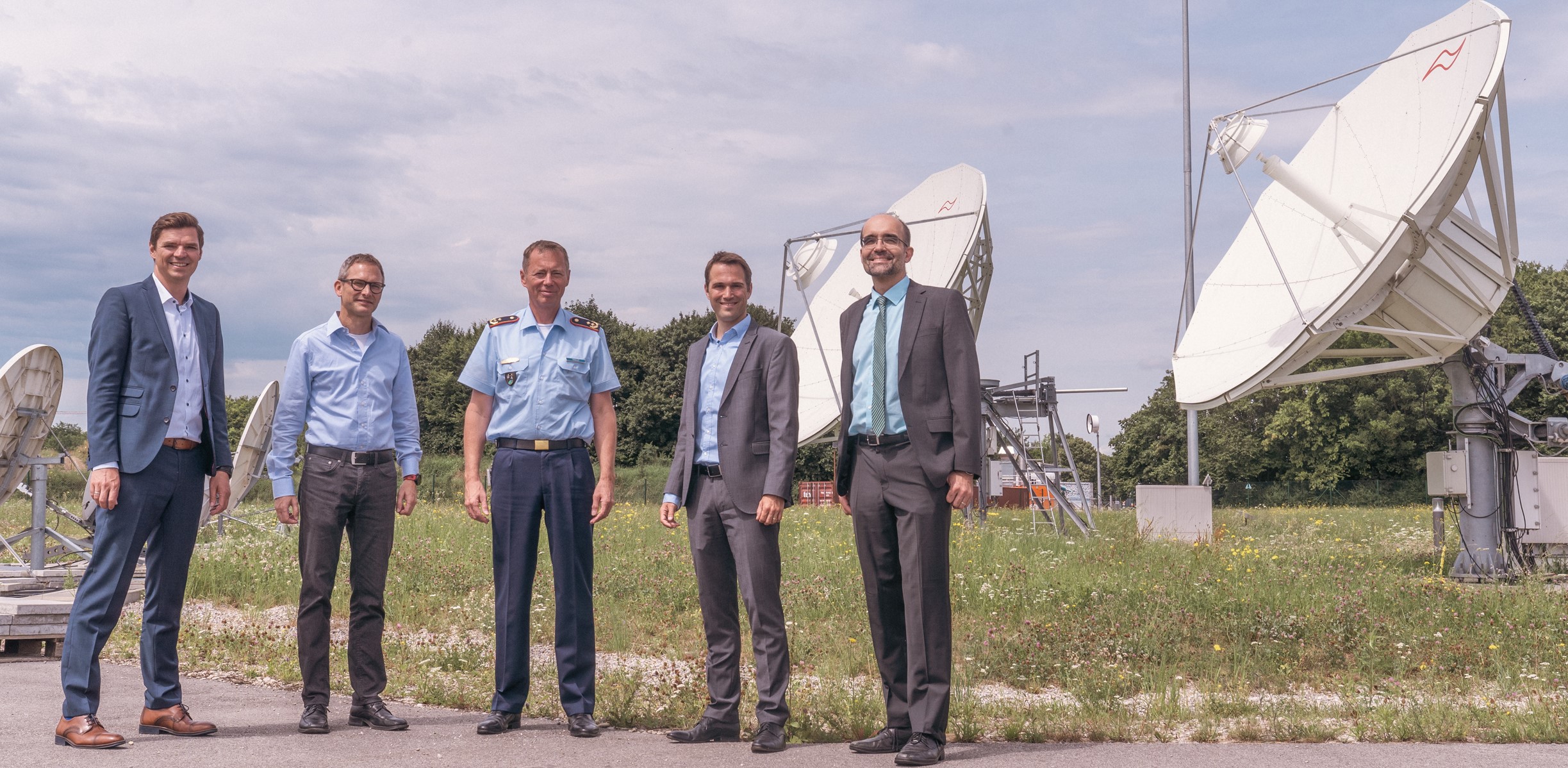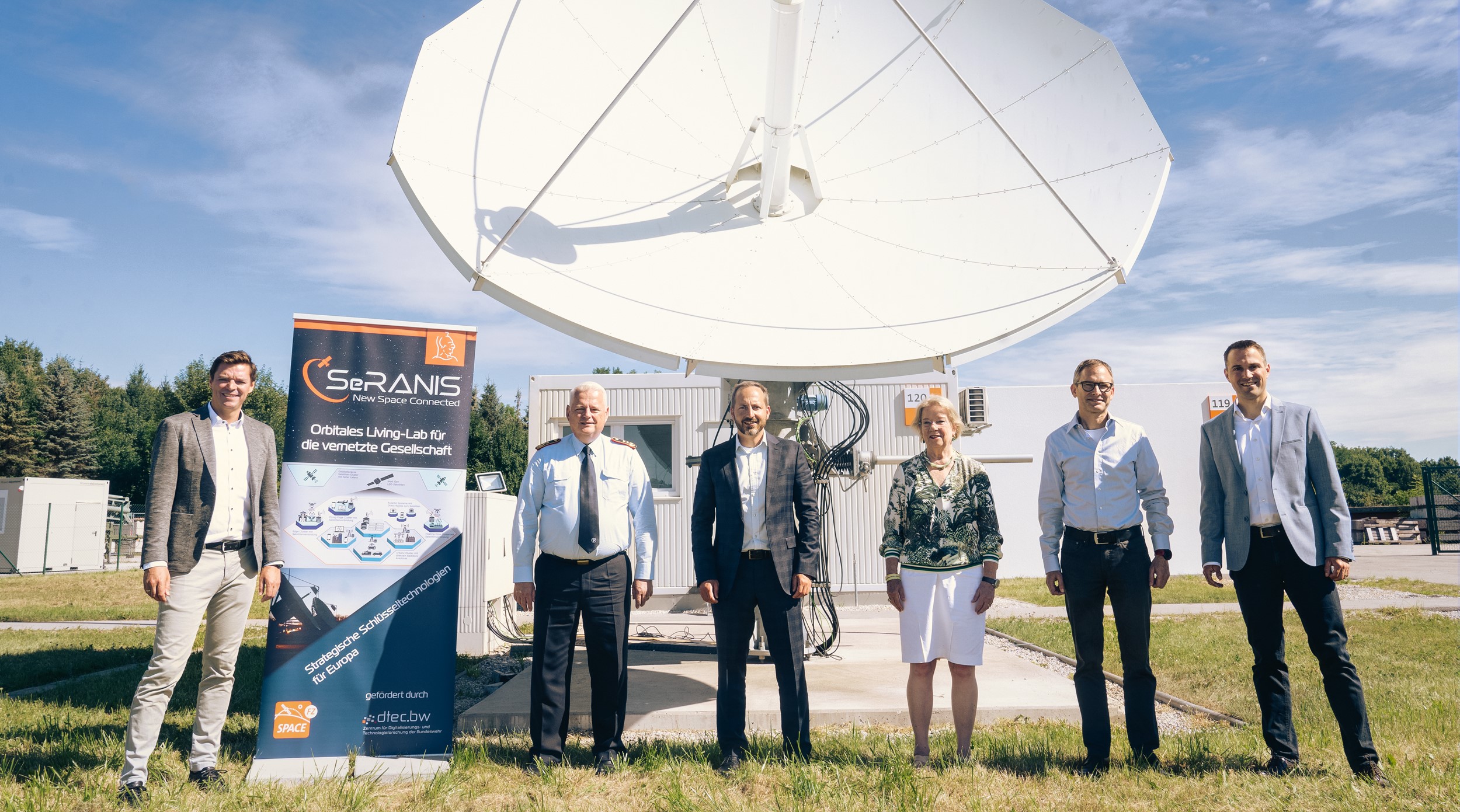June 20, 2022: Israeli Consul General Carmela Shamir visited the Universität der Bundeswehr München
She was accompanied by the Economic Attaché Doron Hemon and the Innovation and Research Officer Ronja Billik. The aim of the meeting was to inform the guests about the numerous projects, initiatives and activities in the field of space, including the SeRANIS project.
The guests were welcomed by President Prof. Merith Niehuss, Vice President for Applied Sciences, Entrepreneurship and Equal Opportunity Prof. Rafaela Kraus, and Prof. Roger Förstner, spokesperson of the SPACE research center, project manager of the space segment at SeRANIS and holder of the professorship for space technology.
Research Center SPACE and SeRANIS
After introductory remarks by the president, Prof. Förstner introduced the SPACE research center and emphasized that “space-based services have become almost indispensable in our daily lives”. Modern life is highly dependent on these services from orbit – in the civil, military and sovereign sectors, he said. The Universität der Bundeswehr München takes this high relevance into account and dedicates its research and teaching to space travel and the services and applications associated with it.
In addition to the SPACE research center, Prof. Förstner also presented the SeRANIS project, which is funded by the Center for Digitization and Technology Research of the Bundeswehr. The aim is to investigate and demonstrate the benefits and technological maturity of space-based key digitization technologies within the framework of a cross-system and cross-platform architecture.
“A small satellite mission serves as the central element, around which mission planning, ground stations and evaluation centers are designed,” says Prof. Förstner. In contrast to isolated research on individual technologies, the potentials of a network of networks are being considered, focusing on the user according to the principle of “thinking from the application”, according to Prof. Förstner. A technology platform is to be created to which scientists from all digitization-relevant disciplines can connect to conduct research and which will also serve as a demonstrator for interested users who want to find out about possible applications and performance characteristics of new technologies. “Within SeRANIS, a variety of technologies will be coherently combined and put to use. This will result in a completely new approach to digitization from and in space”, Förstner explained.
Further topics of the meeting
Prof. Kraus then presented the “SpaceFounders” initiative together with Stephanie Wißmann, the cornerstone of which is the entrepreneurship and intrapreneurship program at the Universität der Bundeswehr München, founders@unibw, and CNES, the French National Center for Space Studies. The two are jointly launching “SpaceFounders”, a Franco-German accelerator for European space tech start-ups.
As an example of a successful startup in the space sector, CEO Kai-Uwe Storek presented NEOSAT GmbH. The start-up develops solutions for satellite communication in the 5G era. Multi-antenna technology (MIMO) is a central element of the new 5G mobile communications standard. NEOSAT transfers this process to satellite communication and thus enables satellite ground stations to significantly increase their throughput and availability.
In order to be able to see parts of this infrastructure live, a visit to the so-called antenna field was on the program at the end. Junior professor Christian Hofmann explained the importance of such a ground-based infrastructure for successful and innovative satellite communication. At the end of the visit, all participants agreed that a more intensive cooperation between the Universität der Bundeswehr München and Israeli institutions is beneficial for both sides and that there is great potential.
You can read the original article here.
Cover image (fLTR): Junior Prof. Christian Hofmann, Vice President Prof. Rafaela Kraus, Consul General Carmela Shamir, Prof. Roger Förstner, founder Kai-Uwe Storek, Economic Attaché Doron Hemon, Speaker Ronja Billik (© UniBw M / Siebold)

